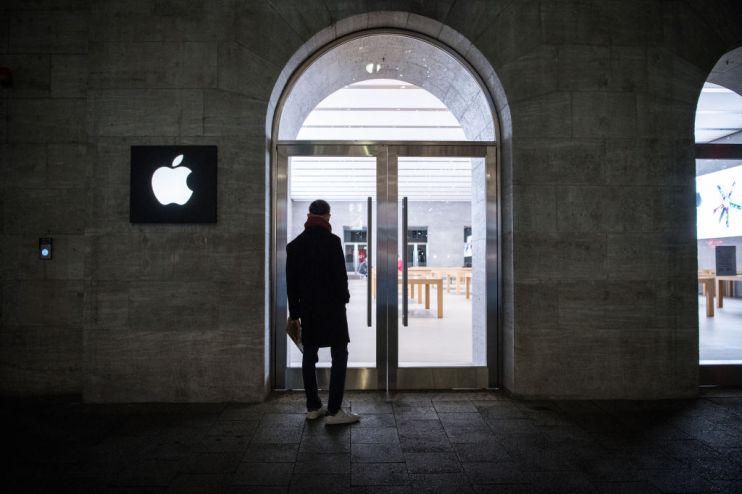Apple’s new privacy features may finally trigger a more transparent tech ecosystem

A new feature in Apple’s operating system has received relatively little attention in the wider media recently, yet it is set to kick start a new era of transparency in the tech industry and hopefully instil more respect for consumer and enterprise privacy.
With the launch of iOS 14, Apple introduced a privacy information section to its app store. Much like a digital version of a food nutrition label, the tech giant now requires every app — including its own — to provide users with a summary of the developer’s privacy practices. This label shows what data it tracks and whether that data is linked to the user.
What’s more, last month, Apple announced plans for a new transparency pledge, which will require apps to ask the user’s permission before tracking their data across apps or websites owned by other companies.
Read more: Tech billionaires’ privacy brawl: Facebook’s defence of its darkest arts defies belief
Combined, the privacy label and transparency pledge signal a huge step change in how the tech industry sees its role in protecting users and enterprises at large. Apple is the latest big tech firm to recognise that it needs to do more to police its marketplace and take responsibility for the actions of users.
Of course, one could also argue that big tech has come to this realisation rather late. Advances in digital technology over the past 10 years have enriched billions of lives, but a growing number of campaigners and academics argue that these advances have come at a severe cost to our privacy.
Clearly, the tech industry has a responsibility to be more open and transparent with users and show more respect for user privacy. Apple’s new features look likely to achieve this aim more effectively than any fine from the EU’s General Data Protection Regulation.
These features will prove to be enlightening to consumers and enterprises alike. I’m confident that most users and organisations would be shocked by the level of data collected by applications. According to the Competition and Markets Authority, the average app includes six “trackers” from other companies, which collect and track users and their personal information.
Some users may be fine with an app tracking their every keystroke and recognise that in order to use a “free” service they may have to pay with their data. Others will object to any intrusion into their privacy. For enterprises however, the implications run even deeper and threaten to offset the entire notion of enterprise security.
Read more: What does the WhatsApp saga tell us about privacy in 2021?
Certainly, people and companies are growing increasingly concerned about their privacy. Individuals and organisations are now more aware than ever of how tech providers use their personal data for commercial gain and are starting to vocalise their opposition to it.
This was evident when millions of users recently migrated from WhatsApp to other messaging services after the Facebook-owned app botched the announcement of an update to its privacy policy. Not only in a personal setting, but in the workplace context too, the consequences of such consumer services being misused could be severe.
Obviously, there is a commercial angle to these new privacy features, as Apple wants privacy-conscious consumers to feel safe using its app store. The company has long tried to position itself as being an advocate for privacy — most notably in 2016, when the tech giant refused to create a backdoor for the FBI to access a locked iPhone that belonged to a terrorist.
However, while Apple is admirable in kick starting the industry to take privacy more seriously, it is not a completely innocent bystander. For years, it has permitted apps that violate users’ privacy to operate on its platform, and in 2019 it was reported that Apple contractors had accessed sensitive user information by listening in to recordings of the company’s Siri voice assistant.
But this is a watershed moment, and one that looks set to push other providers to be more open and transparent with consumers. This will become a major differentiator between businesses – those companies that are completely transparent in how they fund their services, who are upfront and honest about their data practices, and show respect for user privacy, will be the ones that gain the trust of consumers and enterprises, as well as their custom.